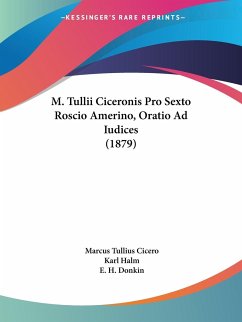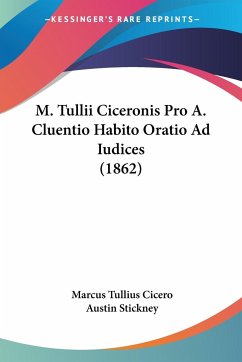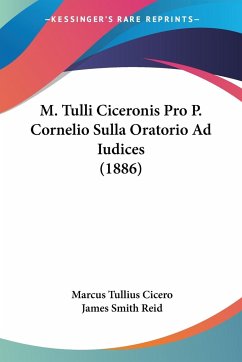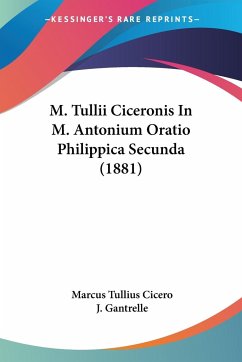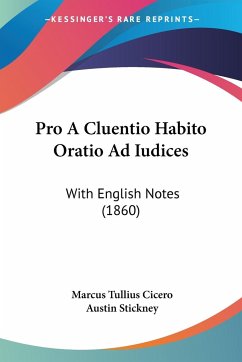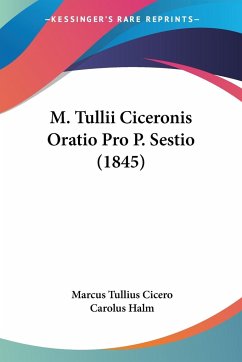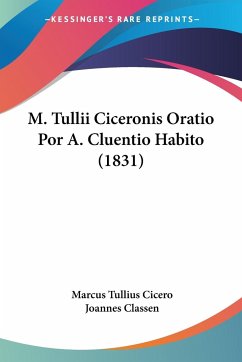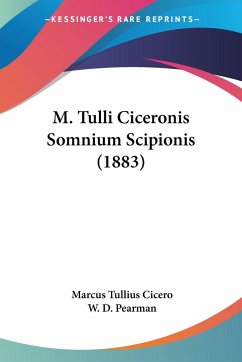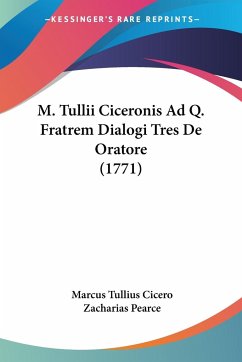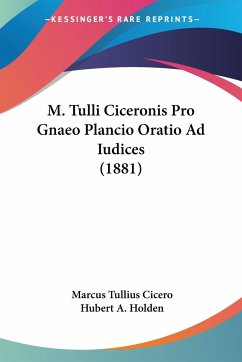
M. Tulli Ciceronis Pro Gnaeo Plancio Oratio Ad Iudices (1881)
Versandkostenfrei!
Versandfertig in 1-2 Wochen
31,99 €
inkl. MwSt.

PAYBACK Punkte
16 °P sammeln!
M. Tulli Ciceronis Pro Gnaeo Plancio Oratio Ad Iudices is a book written by the famous Roman philosopher, orator, and statesman Marcus Tullius Cicero. The book was originally published in 1881 and is a speech given by Cicero in defense of his friend Gnaeus Plancius, who was accused of bribery and corruption. The speech was delivered in 54 BC in front of a Roman court and is considered one of Cicero's most masterful orations. In the speech, Cicero uses his rhetorical skills to argue that Plancius was innocent of the charges and that his accusers were politically motivated. The book is an import...
M. Tulli Ciceronis Pro Gnaeo Plancio Oratio Ad Iudices is a book written by the famous Roman philosopher, orator, and statesman Marcus Tullius Cicero. The book was originally published in 1881 and is a speech given by Cicero in defense of his friend Gnaeus Plancius, who was accused of bribery and corruption. The speech was delivered in 54 BC in front of a Roman court and is considered one of Cicero's most masterful orations. In the speech, Cicero uses his rhetorical skills to argue that Plancius was innocent of the charges and that his accusers were politically motivated. The book is an important historical document that provides insight into the legal system and political climate of ancient Rome. It is also a valuable resource for those interested in the art of rhetoric and persuasive speech.Edited With Commentary And Introduction For The Syndics Of The University Press.This scarce antiquarian book is a facsimile reprint of the old original and may contain some imperfections such as library marks and notations. Because we believe this work is culturally important, we have made it available as part of our commitment for protecting, preserving, and promoting the world's literature in affordable, high quality, modern editions, that are true to their original work.



